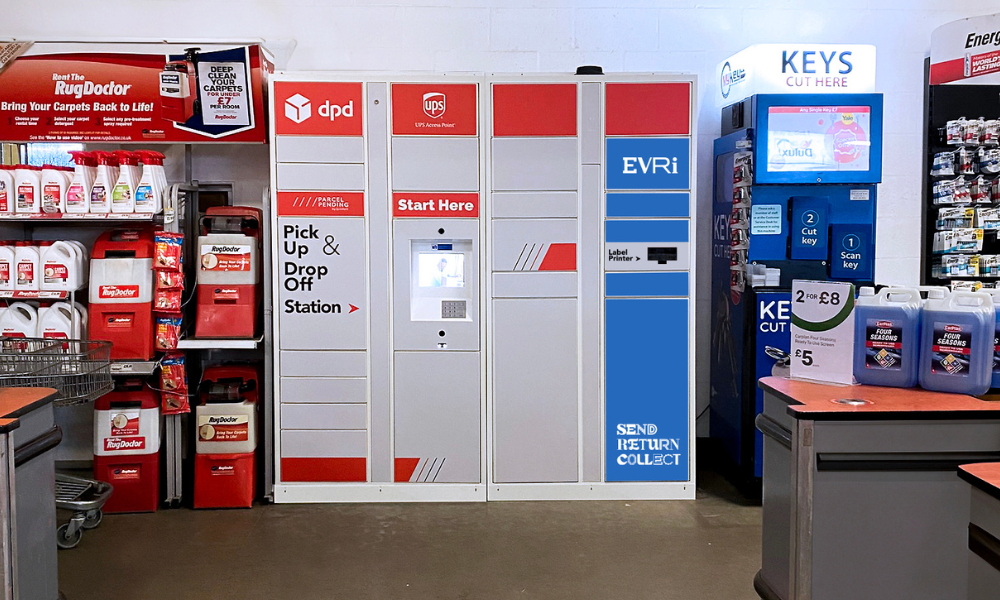Mark Thornton, marketing director at wholesale, distribution and retail IT solution provider Maginus, explores key ways in which wholesalers can add value and remain competitive against online retail behemoths.

Mark Thornton, Maginus
Until recently, the B2B wholesale sector was the trendsetter for fulfilment and supply-chain management, driving new ways of doing business and bringing innovation to the entire industry. Wholesalers were the first organisations to offer same-day delivery on goods to merchants, long before the concept crossed the minds of consumers and retailers.
Now, the fear is that these businesses are being left behind. Led by Amazon, huge retailers are crossing the boundary from B2C to B2B, offering new services and hijacking vendors in the process, insisting that they must use their warehouses in order to be part of value-add services such as Amazon Prime.
In the US, the company has launched Amazon Business, offering payment on account, quantity breaks, punchout integration and requisitioning workflow, showing that they are serious about making their mark on this sector. In the UK we observe a new ‘in beta’ product category: ‘Business, Industry and Science’. How long before Amazon offers a full blown wholesale solution in the UK?
In response wholesalers need to find new ways of remaining competitive and of adding value to their customers. But the good news is, this is mission critical rather than mission impossible. Digital technologies fuelled the rise and rise of Amazon – and with the use of sophisticated IT, wholesalers can still compete against it.
Strategy #1: develop additional services
It’s clear that wholesalers can’t continue offering bare-bones services and expect to compete. As a minimum this means making the move online, a move that some wholesalers have resisted as they believe their business too complicated for e-commerce; their catalogue too large, their pricing too complex or their services too difficult to describe.
However, we have worked with numerous wholesalers to help them make the move, proving that it is possible, providing you use the right tools and solutions.
A wholesaler’s eCommerce offering can include online ordering, real-time stock levels, account information, order history, personalised price lists, order tracking, live delivery information, product brochure downloads and demonstration videos, click-and-collect, to name but a few of the potential options.
Once a wholesaler is online, the door is opened to a range of new opportunities to offer further ‘value-add’ services. As an example, this could include managing the consumer returns process on behalf of their retail customers which could then be extended further to become an ‘online outlet store’ for returned products.
Strategy #2: use data to add value
Instrumental to the success of Amazon has been the organisation’s ability to mine large quantities of data and then use it to add value to consumers and boost profits. This has included personalised offers, free trials of additional services, extensive delivery options, targeted advertising and encouraging customers to offer reviews to enhance its credibility.
Those same principles can also be used by wholesalers to engineer their own future success.
My view is that ‘big data’ principles do not have to be that ‘big’ to make a difference. Business intelligence and data warehousing have been around for decades making the same promises. Now, with the advent of SaaS based products and cheap data storage in the cloud, these solutions are available to everyone.
Furthermore, being at the centre of the supply chain, wholesalers are ideally positioned to use data to not only gain insight into their own company, but also to add value for both manufacturers and retailers. Software such as Clear Returns has proven the financial benefits in retail for the analysis and understanding of returns. The same data patterns held within an ERP system can be as useful for wholesalers.
Insight into individual merchants or tradesmen with particularly expensive return behaviour allows an agile wholesaler, with the right IT solutions, to alter the business relationships; perhaps removing free delivery for those difficult customers.
A symbiotic working relationship may reveal a manufacturer’s product regularly being returned because of a specific fault or because customers can’t get functionality to work. This may lead to changes in production or improved documentation or video content. A win-win for manufacturer and wholesaler.
Strategy #3: know the customer base to increase profitability
Customer data enables wholesalers to analyse which customers are valuable and which are not. It might seem counter-intuitive, but not all customers are good for business.
Those that use up disproportionate amounts of customer service or management time aren’t; neither are those that have demanded multiple daily split deliveries, or zero carriage fees, or hard-to-manage payment terms. For many wholesalers, it makes good business sense to divert resources away from these customers and towards those who can really contribute to business profitability. To do this intelligently, wholesalers need to analyse customer data long after a sale has been made, examining factors such as the cost of returns and cost of service. Put simply, allowing those difficult customers to leave (and perhaps switch to Amazon) could be the best route to remaining profitable and staying competitive.
It’s a jungle out there
The Amazon era has undoubtedly brought huge challenges for wholesalers. But the same methods that have helped Amazon become a global retail force can be applied to wholesalers to drive their own success. Online services and intelligent use of data, coupled with a greater understanding of the wholesale landscape, will not only enable wholesalers to survive but also thrive in Amazon’s jungle.









